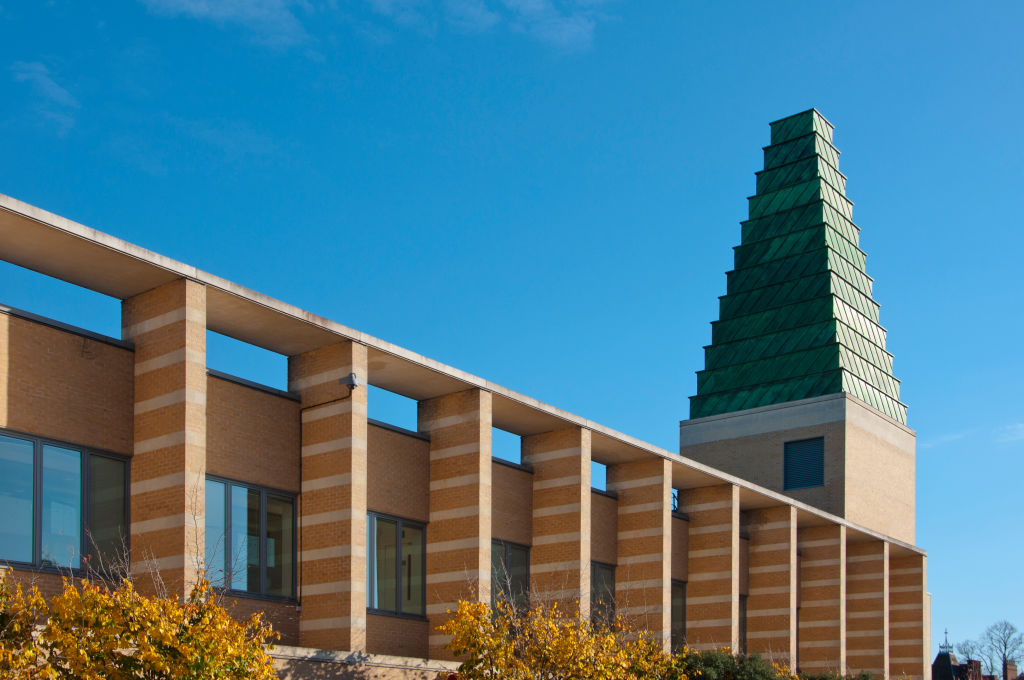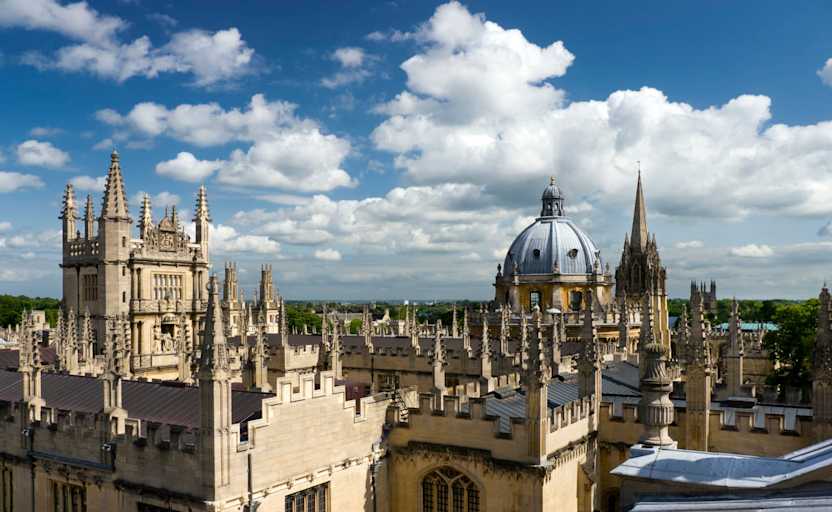How Old Is the University of Oxford?
One of the hallmarks of a college tour is learning about the school’s history, including its age. But what if a university is so old that it’s unclear when it was founded?
That’s the case with the University of Oxford — one of the world’s most prestigious universities. While we know that Oxford is the oldest university in the English-speaking world, the exact timeline of the university’s establishment is unclear. However, historical records do show that teaching activities existed at the University of Oxford as early as the 11th century.
Determining the Age of Oxford University
Legend suggests that the first iteration of the university was established in 872 when Alfred the Great held a multi-day debate with monks in the area that is now home to Oxford University. But there is no real evidence to back up this idea.
However, it is known that early teaching took place on the site of Oxford University as early as 1096. These activities became more established in 1167 when the King of England prohibited English students from studying at the University of Paris. Many of these students ended up at Oxford.
That said, records of the university’s history as an official educational organization really only became verifiable in 1248 when Henry III issued the university a royal charter, thereby establishing the school. Still, that would make Oxford University older than the Aztec Empire by almost 100 years!
Historical Significance and Evolution
As early as the 1300s, the University of Oxford received praise from popes and kings for its eminence as an academic institution. Since then, Oxford has become increasingly historically significant, reaching important milestones and making many contributions to both academia and society over the last millennium. Some of these include:
- 1
The discovery of penicillin as a life-saver
While penicillin itself was not invented at Oxford, its medicinal utility as a life-saving antibiotic was discovered by a team of researchers at the university at the end of the 1930s. Penicillin became crucial during World War II and has since become a commonly prescribed antibiotic for infections. - 2
The inclusion of women as Oxford students
As is the case for many universities across the world, Oxford was initially established by men for men. While women were not admitted to the university as full students until 1920, academic halls for women were first established in 1878. By the mid-1980s, all of Oxford’s colleges revised their statutes to allow women to be admitted, although it wasn’t until 2008 that all colleges had at least one woman attend. - 3
Combatting the COVID-19 virus
Oxford researchers were at the forefront of the COVID-19 pandemic, creating a vaccine that has been distributed worldwide. In 2022, it was estimated that the Oxford/AstraZeneca COVID-19 vaccine had prevented 50 million COVID-19 cases and saved the lives of more than 1 million people.
Present Day at the University of Oxford
Today, Oxford University is a large university ecosystem comprising nearly 40 undergraduate and graduate colleges. Each college operates as its own autonomous, self-governing unit with faculty, tutors, and support staff. Students can expect to complete most of their chosen field of study within their home college. While each is a part of Oxford, students will find their college has its own unique identity, traditions, and community.
Academic Excellence
Although rankings lists shouldn’t be the be-all and end-all when choosing a school, they can be useful, and many students look to college rankings while deciding where to pursue a degree.
If you’ve done this on a global scale, you’ve undoubtedly seen Oxford on countless lists. No university has been consistently ranked No. 1 in the world more than Oxford. In fact, in 2023, Oxford was ranked the top university in the world for a record eight consecutive years by the Times Higher Education World University.
Student Life
Students at Oxford are assigned to a college at the beginning of their studies. This may be a specific college indicated on their application or a college chosen by the admissions staff.
Oxford students attend school within a large university setting that provides many opportunities for charting their own path. While undergrads go to school, they are housed in one of 30 undergraduate colleges or halls, each rich with its own identity and history.
Many students make close-knit connections with members of their college, where they spend most of their time — especially during their first year of study.
Libraries and Collections
No matter what college you attend, you’ll no doubt be spending considerable time at one of the university’s libraries.
Once thought to be a place for borrowing books needed to complete a term paper, today’s university library provides a much more diverse set of library services, including access to special collections.
Oxford’s library — known as The Bodleian Library — is a library system made up of 26 individual libraries serving the needs of the university community. Beyond its architectural beauty, Oxford’s library is one of the oldest and most revered in the world for its collection of rare texts and artifacts. The Bodleian Library boasts an inventory of over 13 million items, of which 10 million are considered part of its special collections.
Though you may not have visited Oxford’s campus before, you may recognize the Bodleian Library’s upper reading room as the setting of the Hogwarts school library from the Harry Potter movie franchise.
Research
Beyond its notable faculty and lecturers, Oxford is known for its groundbreaking research programs and centers. Research conducted at Oxford by faculty members has resulted in inventions like no-needle injections, lithium-ion batteries, and weather prediction techniques.
Notable Faculty Members
As one of the best universities in the world, Oxford has attracted a host of notable faculty over its lifetime. Similar to the Ivies in the United States, Oxford’s faculty have been political leaders, scientists, philosophers, and artists — some earning the Nobel Prize or other distinguished awards.
Oxford faculty are also known to have come up with some of the greatest modern-day inventions. For example, Tim Berners-Lee helped invent the World Wide Web, and Jocelyn Bell Burnell discovered the first radio pulsars.
Centuries of Academic Excellence
While no one knows just how old the university is, Oxford’s historical existence has undeniably impacted higher education and research throughout the last millennium. In addition to being revered for its age, Oxford has had a long-standing tradition of academic excellence established by its notable faculty, famous alums, and groundbreaking inventions and contributions to various fields of study.
Students who attend Oxford are in good company — the school has hosted former U.S. presidents, 30 British prime ministers, and countless award-winning artists as students. Additionally, Oxford alums and faculty have made groundbreaking advancements with their ideas and inventions in philosophy, mathematics, science, and medicine. As such, Oxford continues to operate as one of the most prestigious universities in the world.



